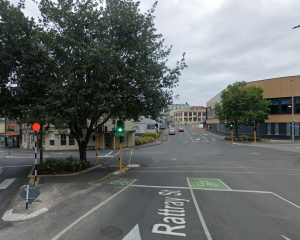
While discussing draft 10-year plan budgets yesterday, councillors voted for the inclusion of $1 million per year for the next 10 years for the development of new community housing.
An alternative option of $2 million per year would also be put forward for feedback during public consultation in March.
A report presented to the council said there was not sufficient funding to buy new land or build new housing units, despite a projected increase in demand.
This was largely because of low rent across the council’s 936 units, council property services manager David Bainbridge-Zafar said.
Councillors supported the proposal and expressed concern about the ongoing need to support those who needed community housing.
Cr Steve Walker said the council needed to do something for the most vulnerable in society, who were increasingly less able to get affordable housing.
Cr Jim O’Malley asked why the Government was not addressing the problem and funding councils to act as community housing providers.
"We want to be part of this. We want to deal with the problem."
According to the Government’s eligibility criteria for becoming a provider, local authorities and council-controlled organisations cannot register.
However, a subsidiary of a local authority or council-controlled organisation may apply to register as a provider if it operated at arm’s length.
Cr Lee Vandervis expressed concern ratepayers would not be willing to cover the cost of community housing and instead suggested putting rent prices up for those in council housing.
"In the long term, [the proposals] will make a lot of ratepayers resentful of having to be taxed to supply others with housing at their expense."
Mayor Aaron Hawkins said it was up to the council to do what it could to alleviate the housing crisis.
It was more transparent for the council to take an exact figure to the community for feedback, rather than putting forward questions about supporting community housing in general, he said.
Cr Rachel Elder said the community would indicate what they preferred during consultation, and Cr Marie Laufiso said it was about people, not profit.
The initial intention of the council’s community housing portfolio, worth $100 million, was to operate on a break-even basis.
However, for 10 of the past 15 years, it had not done so.
The proposal will be put to the public in March for feedback before final 10-year budget decisions are made.
Comments
So let me get this straight - the council admits housing is too expensive and their plan to combat it is to make housing even more unaffordable to purchase for general citizens with rates so they can afford to purchase property themselves and then rent them out even further below market value, while other citizens who are already losing too much of their income on housing pick up another bill.
The cost of housing and housing is predominantly a Central Government issue. The policies they implement cause this distortion. Local Government has little influence on housing policy. It is not for local government to house it's population and it doesn't help people house themselves if higher rating means they are also paying to house another family or people or by causing rent increases. The incentive must be to house oneself and lower rates will help all in housing situations, afford to house themselves.
It is for central government to fix the housing problem as it is a result of policies made by governments this century. Keeping rates low is a major equitable way councils can aid the housing problem. Every rates increase percentage above and therefore higher than those on fixed incomes get, exacerbates the problem of housing affordability, tipping more out of present homes and housing. Does the council not see this?












